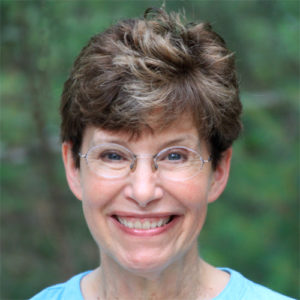Zoning Changes Would Jeopardize Natural Resources And Cost Taxpayers Dollars
The following letter was submitted to local newspapers and is reprinted here with permission of the author Ruth Platner. Ruth is the current Chair of the Charlestown Planning Commission.
Opponents to conservation design and updating our long-standing cluster subdivision regulations created chaos by misrepresenting how common land in cluster subdivisions is owned. In Charlestown, and other towns in the state, this common land is owned and shared by all the homeowners, not taken by a town or a land trust.
Clustering benefits homeowners, protects more natural resources, and reduces costs, and developers generally like this method of subdivision. So what was the opposition really about and why try to defeat its adoption with misinformation rather than real arguments?
Subdivision of residential land is tied to the underlying zoning. If a property is zoned Residential 2 Acre (R2A), the total number of dwellings is determined by dividing the total property into 2-acre lots. If the resulting “yield” is 10 lots, then no matter how much common land is set aside, nor how small the lots may be, there can be no more than 10 lots.
Opponents argued that the lots in the subdivision should not be restricted to one house, but should be allowed to have two dwellings on each lot or apartment buildings with multiple units. In a more urban community with public water and sewer, the total number of dwellings per acre can be flexible, but in Charlestown our development densities are tied to protecting the aquifers that supply all our drinking water, the freshwater and coastal ponds from contamination, and the wetlands and forests critical to containing flood waters.
Opponents also argued against permanently protecting the remaining undeveloped land from development, calling it a “confiscation.” However, a conservation easement, commonly applied to the land in cluster subdivisions throughout the state, protects groundwater and other natural resources from future development forever.
Had the opposition succeeded, their changes could have doubled, or more, the number of dwelling units per acre and permitted the remaining land set aside for homeowners to be developed in the future at this density as well. These same voices are now demanding that Charlestown “comply with state law” and allow a second dwelling unit on any new or existing lot, despite being told by the town’s attorneys that Charlestown complies with state law and the law does not require that we allow these density increases.
The changes desired by opponents would jeopardize our natural resources and cost taxpayers dollars. They do not comply with Charlestown’s Comprehensive Plan or State Land Use Plans. They contradict the priorities identified by our taxpayers in the 2021 Town-Wide Community Survey, and they have nothing to do with providing affordable housing because the resulting homes would be market-rate housing.
Independent Town Council candidates—Susan Cooper, Peter Gardner, Ann Owen, Joshua Vallee, and David Wilkinson—and Planning Commission candidates—Walter Mahony, Carol Mossa, and Lisa St Godard—will work to maintain responsible development. They will oppose other candidates’ calls for careless changes to our zoning that would greatly increase the number of houses per acre throughout the town and threaten a heavier tax burden and a diminished quality of life.

You can learn more about the author, Ruth Platner, at her profile page.
October 13, 2022 @ 1:34 pm
Thanks yet again Ruth for trying to refute the misinformation that is being spread by unprincipled people in this town. They have been told time and again the “tRuth” of this issue but they stubbornly continue to spread un-truths for their own political reasons. I hope that the majority of the Charlestown voters see through their duplicity
In the interest of full disclosure my wife Frances is vice chair of the planning commission, endorsed and supported by the CCA in whom we share their values and goals. I add this because in the past I have been accused of not doing so, and I am immensely proud of her working so hard and donating so much of her time on this highly valued activity.